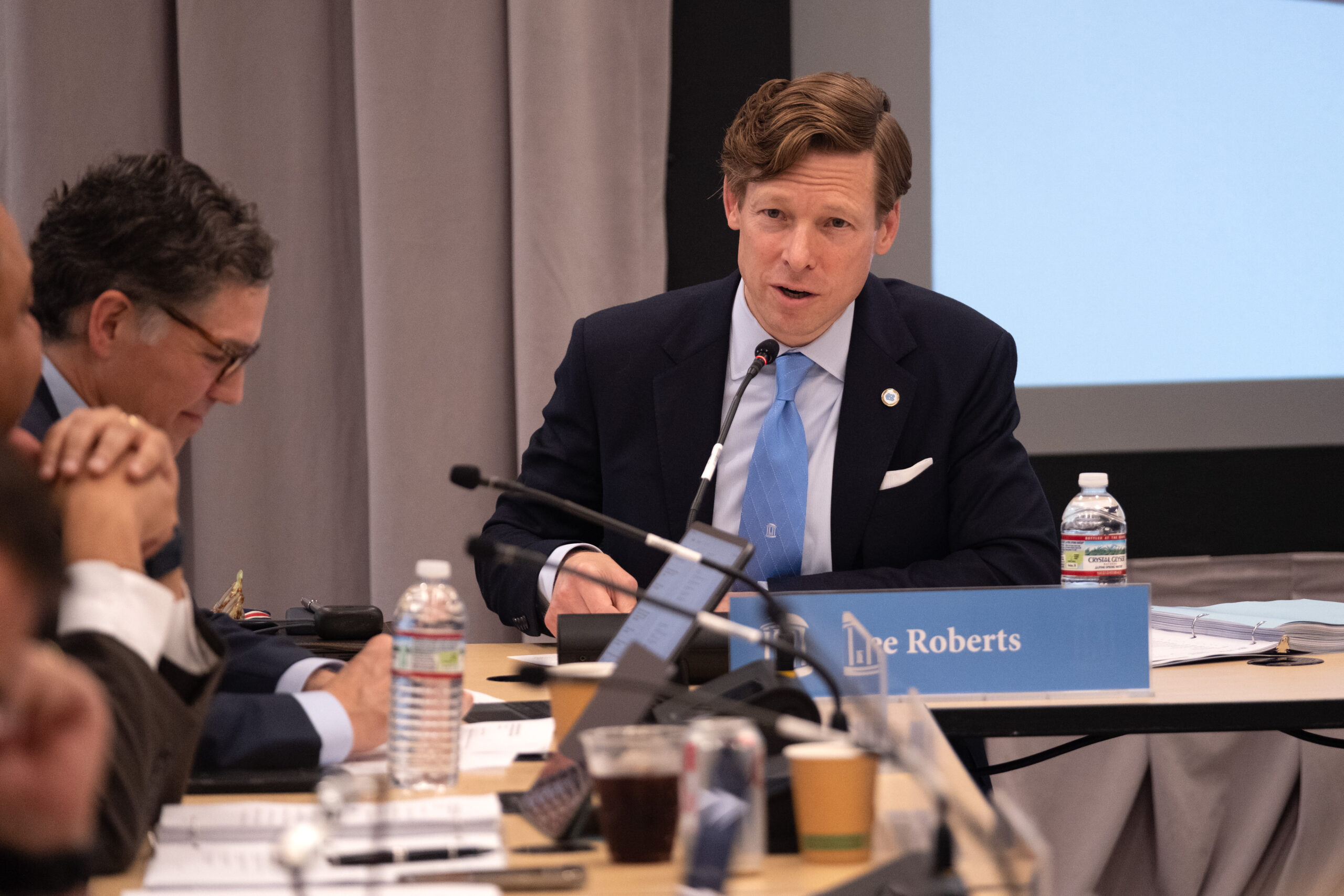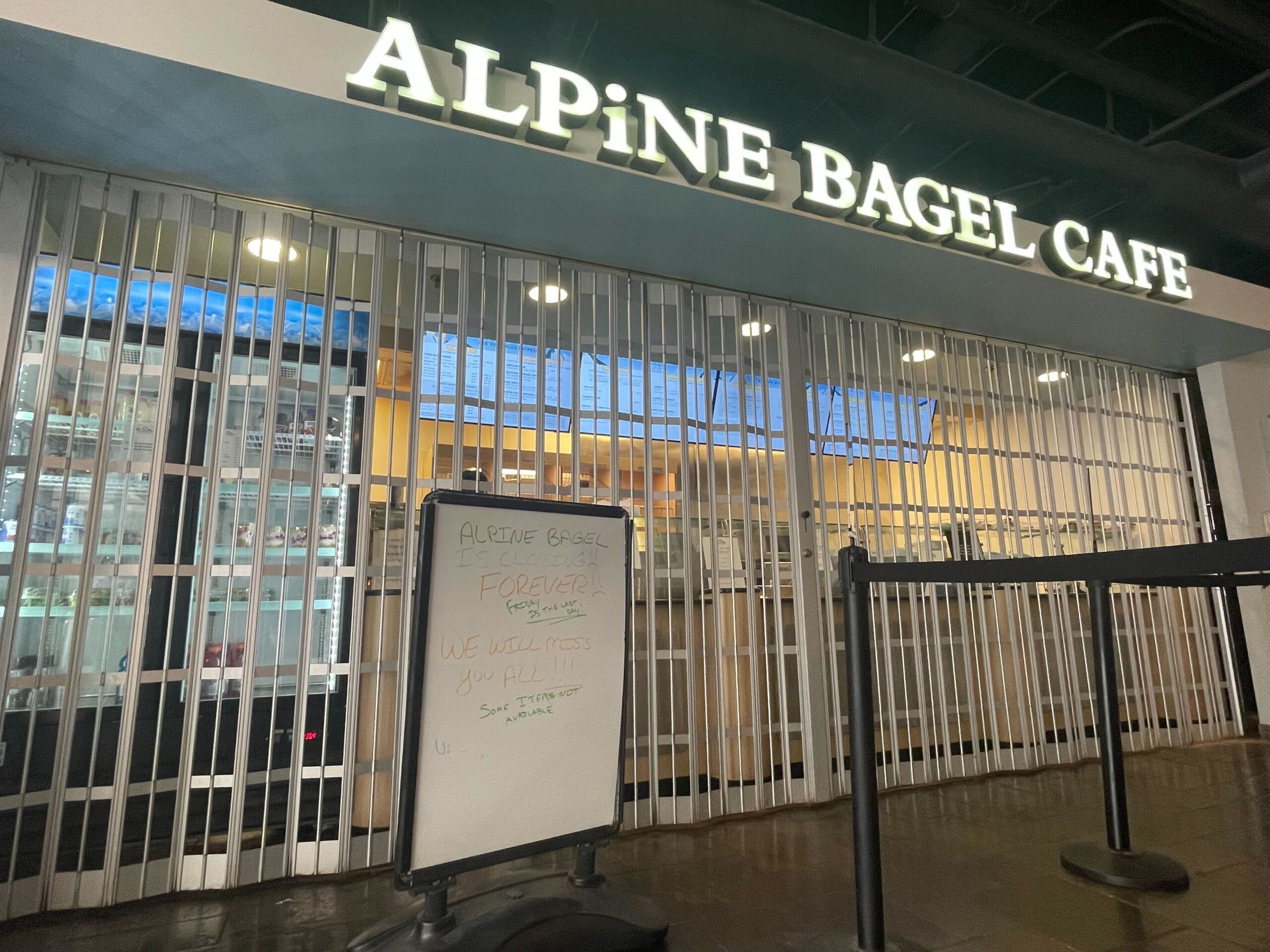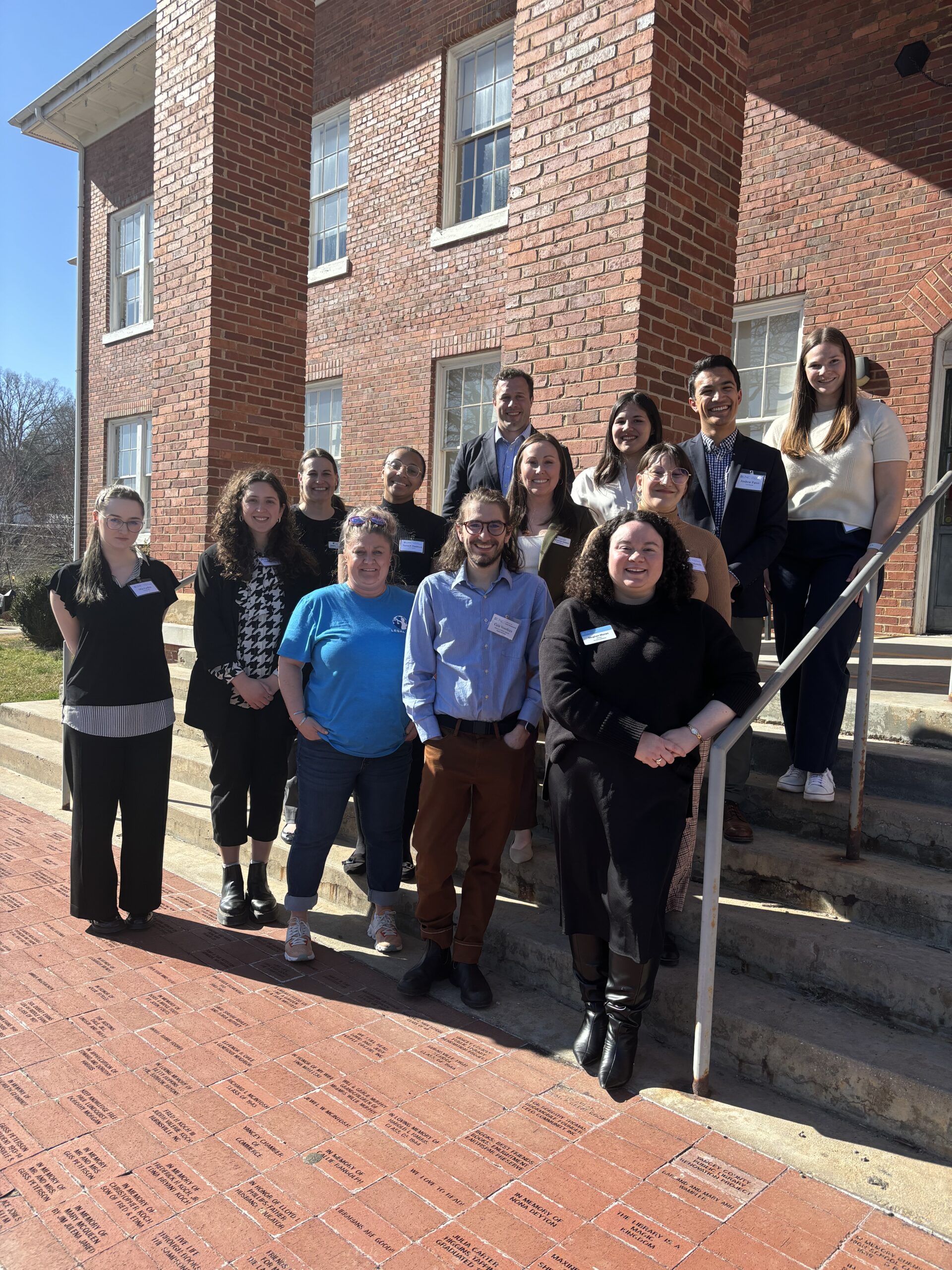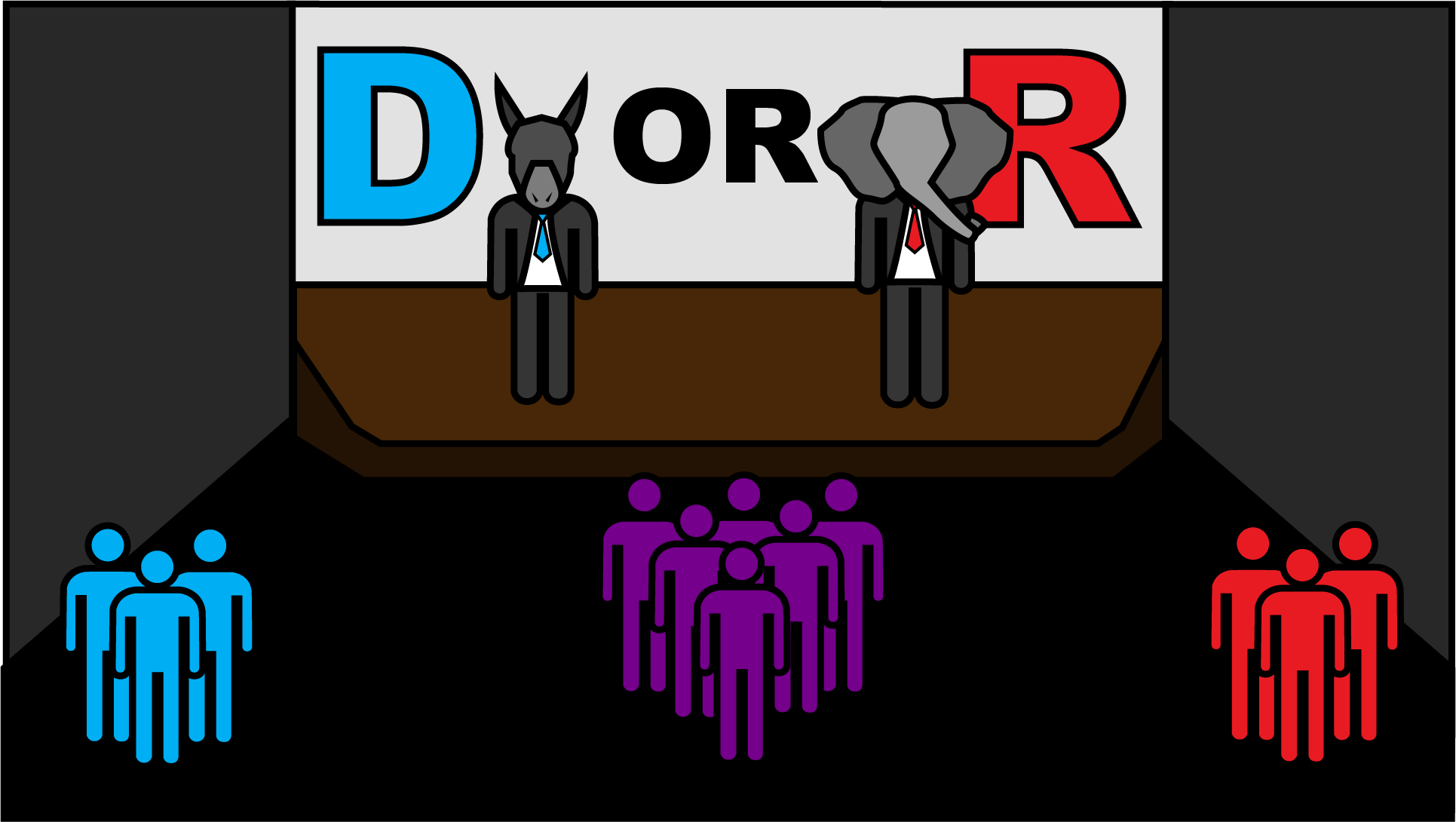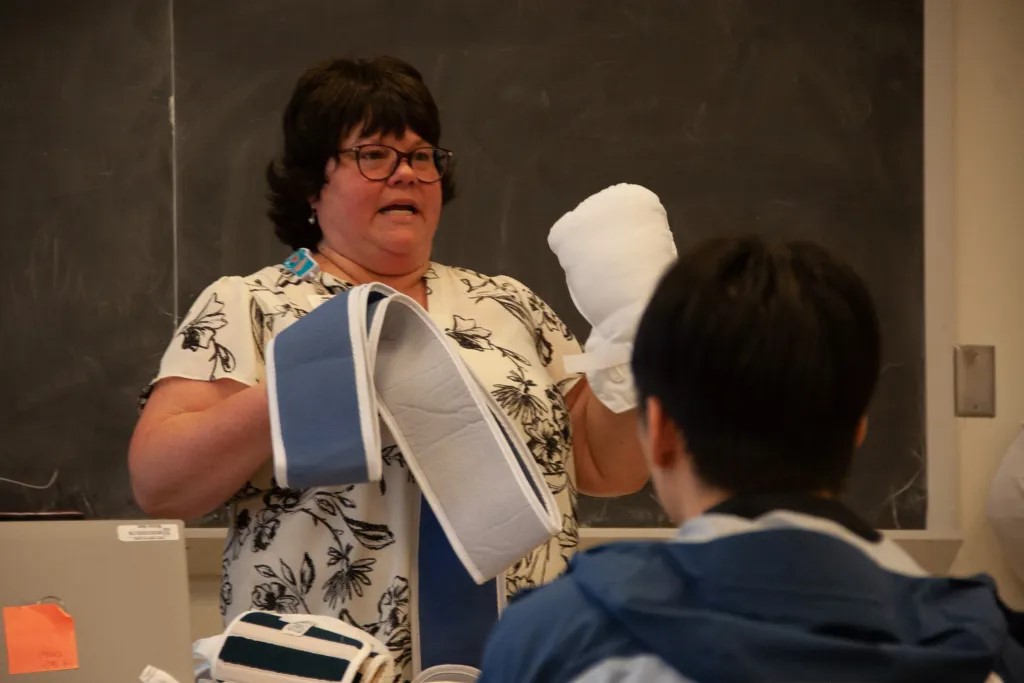UNC Chancellor Lee Roberts joined 97.9 The Hill’s Aaron Keck on Friday, Jan. 31 for a wide-ranging interview checking in as the university’s spring semester got started. The pair discussed some of the biggest news from the federal government as President Donald Trump began his second term with a flurry of executive orders and directives that could affect to the Chapel Hill campus. Additionally, Roberts discussed some of his priorities after being in the chancellorship for roughly a year, and detailed one of the biggest stories since he took the role: the hiring of Bill Belichick as head coach for UNC football.
Below are highlights of the interview with Roberts, with his comments lightly edited for clarity and arranged to highlight the topics covered across the entire conversation. To listen to the full interview from “This Morning with Aaron Keck,” click here.
On The Threat of A Research Funding Freeze From the Federal Government
It’s obviously something of a moving target. There’s a lot of interest and, candidly, a fair bit of anxiety among the faculty and researchers about the profile of federal research funding going forward. But we’re not alone in that. We do receive an enormous amount of federal research funding. We’re one of the top 10 universities in the United States in total research funding, $1.55 billion — number nine nationally, up from number 12. We and our colleagues at the UNC System, and the other large research universities around the country, are all not just tracking the developments coming out of Washington relating to the availability of federal research funding… but also actively trying to lobby, to convince policy makers of the importance of federal research funding and the benefits that it provides.
More of our funding comes from the National Institutes of Health, NIH, than any other funding source. That’s lifesaving research. It’s creating groundbreaking innovations that are going to advance human knowledge as it relates to medicine, biomedicine, public health. We think we’re doing really exceptional work here at Carolina in that regard, and we think those are wise investments.
We continue to advocate for the work that we do. I know that there’s been, ever since the election, considerable anxiety — and one message that we’ve tried to deliver, admittedly with limited success, is… let’s wait for actual policy guidance before we react. We don’t wanna react to something that we see on social media. [UNC Faculty Chair] Beth Morocco used the phrase “anticipatory compliance.” There’s a lot of chatter, there’s a lot of noise. But the difference between noise and actual policy making is significant — and as an institution, we can only react to actual policy. I know it’s unsatisfying to a lot of people, but there’s a lot more that we don’t know than we do know. We do continue to advocate for Carolina and for the federal programs that we participate in… but we also need to wait and see with a lot of this rumored policy development.
We have an active presence in Washington. We not only have our own federal relations team, but the UNC System does as well. [We have a] strong presence, really robust dialogue with the North Carolina Federal delegation and other crucial policy makers. We’re also a member of a couple of trade associations, the American Association of Universities. And then there’s another organization for public universities, the APLU, and they’re actively lobbying on behalf of America’s public universities, America’s research universities. So, my experience with policy advocacy is that there’s safety in numbers and that the more folks you have making a case about a certain issue, the better chance you have stands to reason in a democracy. And there’s an awful lot of folks in Washington explaining the benefits of federal research funding for America’s research universities, in addition to our own focused — and I think — pretty effective efforts.
On Complying with Federal Immigration and Deportation Policies
First of all, we have about 3,000 international students [in UNC’s] total of 30,000 graduate and undergraduate students. So 10% of our student body are international students, and they’re crucial to what we do. They’re throughout our programs at both the graduate and the undergraduate level. They’re a robust presence on our campus, they’re important to Carolina, and they have been important for a long time. We want them here at Carolina, and we do everything we can to make sure they feel welcome and feel as though they belong. I certainly understand and empathize with the anxiety around possible changes in immigration policy.
You know, my wife and I lived in London for seven years. We had two kids there, and we were there first on a work visa, and then on the U.K. equivalent of a green card. And I can’t imagine how unsettling it would’ve been to have our immigration status called into question. We had little kids, we owned a flat — and if our ability to stay, do our jobs, and raise our family there had been questioned, that would’ve created enormous anxiety and stress. And so, I do feel a lot of sympathy with our international students in this regard.
As it relates to enforcement, we cooperate with law enforcement. It doesn’t matter whether it’s ICE or the DEA or the Town of Chapel Hill [police] or the Orange County Sheriff’s Department or a public school. We cooperate with law enforcement and we follow the law. That’s been our consistent stance, and that’s what we’ll continue to do going forward.
We have a website up, it’s been up for some time — not just since the election or the inauguration — just explaining to our community what their rights are, what their course of action should be in a range of situations. Again, I caution against anticipating particular enforcement actions or policy actions, but I think people sometimes forget that… it’s not a stretch to say that we are an agency of the government, of the state of North Carolina. That’s just a matter of of fact. I think that places a responsibility on us to work with law enforcement and work within the law, comply with the law.
We’ve certainly heard quite a bit from staff and faculty about this issue. I have not heard from students who have identified themselves as DACA students or undocumented students. We don’t track undocumented students and have talked to other chancellors within North Carolina about that. And I think our policy on that is the same as the other schools that I’ve spoken with.
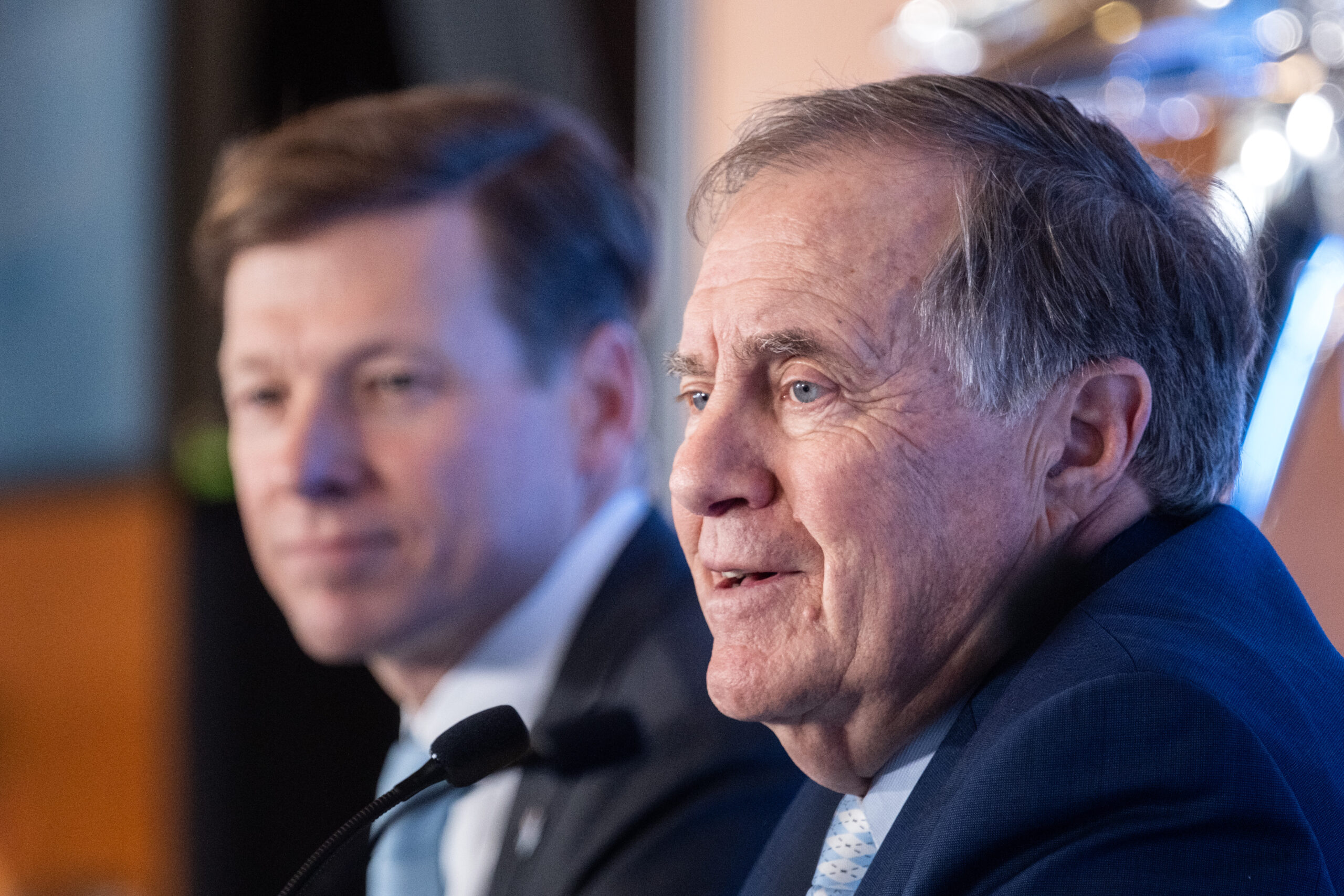
UNC Chancellor Lee Roberts sits beside Bill Belichick as the latter is introduced as the head coach of the North Carolina Tar Heels football team at a press conference held Dec. 12, 2024. (Photo via Jon Gardiner/UNC-Chapel Hill)
On Striking the Balance of Academics and Athletics, Under the Context of A New Financial Structure for UNC Football
Look, football is important to Carolina. It’s been important since 1888. We’ve been playing football in Keenan Stadium for almost one hundred years. Our football program is older than most of our academic departments, and I think the best days for Tar Heel football are yet to come. Football’s only growing in importance, and I think most people are generally aware of that. All of our peer institutions are continuing to invest heavily in football, and we want to compete at the highest level in football — that’s why we went out and hired one of the greatest coaches of all time in any sport. Those processes [of] hiring a coach have to happen fairly quickly. There’s a narrow window between the end of the season and when most of the coaches who are available end up committing to wherever they’re going to commit. You’ve got a relatively tight window with the transfer portal and high school recruiting. So it was an active [and] busy time, but we couldn’t be more excited about how it ended up.
It’s not like the movies, but there were a couple of really constructive conversations [with Belichick during the hiring process] about reaching a shared vision for our football program. ‘What do we want to be in football? What’s happening in college athletics generally, what are the differences between the NFL and the college level? What does it mean to be at Carolina and represent not just our school, but in many ways our state?’ He’s off to an incredibly strong start — he’s put in probably six months of work in the six weeks or so that he’s been here. I’ve seen a lot of people work very hard, but he’s at the very top of the charts in terms of the hours he puts in. He’s been all over the east coast recruiting high school players, very active in the transfer portal, [and has] hired a terrific staff.
Of course, our core mission is the academic and research mission. Our athletics programs are important, but they’re the tail — they’re not the dog. At the [January] faculty council meeting, I reminded everyone of the famous Dean Smith line about athletics being the front porch of the university. The reason that analogy has persisted for so long is because it’s true. Academics are the house and athletics are the porch — but the porch is very visible. The athletics programs that we have at Carolina are easily the most visible thing that we do, but they really serve as a way to entice people to come inside and see all the other wonderful things that are happening here at Carolina and learn more about our remarkable institution. I’m not confused about what our core mission is, what we were founded to educate and serve the people of North Carolina. That’s what we’ve been doing for 231 years now. It’s what we’re gonna do for the next 231 years and beyond.
On His Core Priorities As Chancellor
When I started, we decided to up update the strategic plan in four key areas. Those are enrollment, [artificial intelligence, the physical master plan and applied sciences.] You know, the state is growing very quickly. Carolina hasn’t grown very much, and so we’re going to grow enrollment slowly over time. Over the next 10 years, we’re making a down payment on that growth by adding 500 additional students for the class that we’re admitting right now, starting in the fall.
The new students who will be coming in will still be at the same resident, non-resident split as we have currently. So 82% [of the undergraduate student body are] North Carolina residents, but our applications continue to skyrocket. We received 78,000 applications this year — that’s up 10,000 applications, just from last year, about a 15% [increase.] We’re up over 30% just in the last two years. So we’re delighted to realize that there is no shortage of demand for the education — the high quality, affordable education — that Carolina offers.
Artificial intelligence [is] most likely the most important technological development of our careers. We’re a leading global research university. We have to have a research strategy around AI. It also holds the promise of making our operations run more efficiently, more effectively — and it has significant implications for the classroom. Not just how computer science and data science subjects are taught, but how all subjects are taught. So, we need more of a focused strategy in that regard and to grapple with the, the still unfolding implications of, of that technology.
We have very strong engineering programs and applied physical sciences: biomedical engineering, data science, environmental engineering. [There is] incredibly strong demand for those programs, and very strong employer demand for those students. So we would like to increase the capacity of those programs, would like to add to them over time.
And [for the physical master plan,] we always have some important new capital projects underway… but we also need to be smart about how we spend our scarce and finite repair and renovation dollars, and understand our capacity utilization better. In fact, when we were talking about growing enrollment, it forced us to understand exactly how we use our chemistry labs, for example, are they at full capacity? Are there ways that we can use them more efficiently, more effectively? Same for our large lecture halls, same for our dining facilities, our parking facilities. These are important resources, and we have a responsibility — especially given how much it costs to build new ones — to make sure that we’re building them, that we’re using them effectively. We also have our School of Civic Life and Leadership, which is off to a remarkably strong start. It’s hard to believe that the new dean was just hired in March of last year, given the progress that they’ve made. They’re hiring a world class faculty. We have that minor up and running now, a lot of demand from students for those classes, and we’ll have the major underway this coming fall.
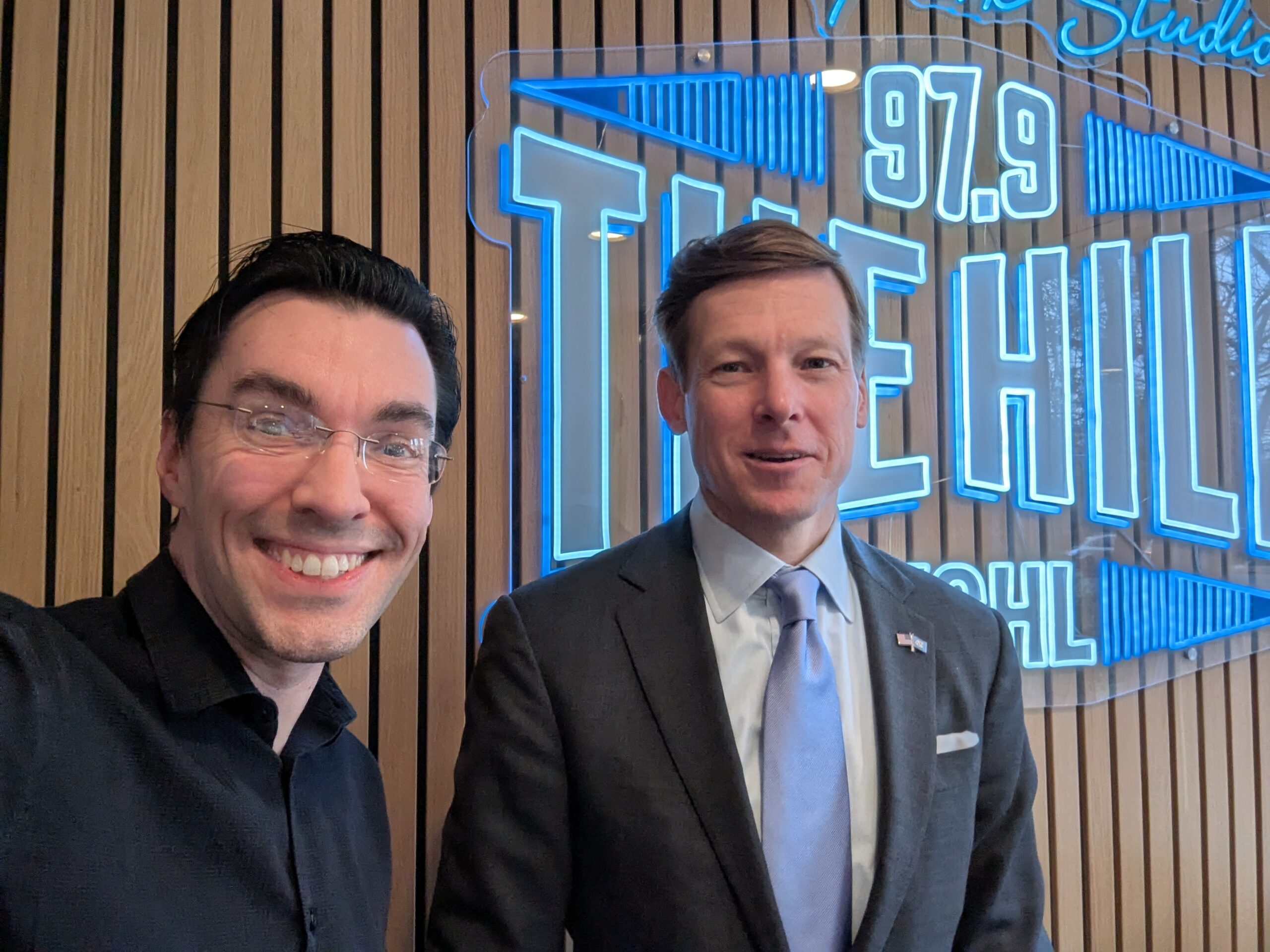
UNC Chancellor Lee Roberts with 97.9 The Hill’s Aaron Keck after their interview on Thursday, Jan. 30.
On Addressing Increased Student Housing Options Alongside Increased Enrollment
[With increasing enrollment,] we do need to continue to expand housing. We would need to do that even if we weren’t adding students, just because some of our product ages out over any given period of time and we always have dorms offline given the average age of the buildings on our campus. Right now, Avery [Residence Hall] is offline as it is being renovated. You know, we house about half of our student body on campus — that’s significantly above our peer group. Our peer groups [are] generally around one third. That doesn’t mean we should be dropping to that level, but we need to be thinking comprehensively about the housing options… not just for undergraduate students, but for graduate students where the data shows they really struggle affording to live in Chapel Hill. They’re only here for a short period of time. Most of them, they don’t get paid particularly well. We need to make progress on that also, but… they want to live nearby, they want to be able to walk, they wanna take public transportation. The [housing] options for that are limited.
There’s more we can do to provide both undergraduate and graduate student housing, but also to help the Town of Chapel Hill address the affordable housing challenge more generally. As you know, Mayor Jess Anderson is passionate about affordable housing. She and I have had multiple constructive conversations about this. And one big advantage that we have, unlike most university towns, is that the university owns some developable land — and that land can be used to help address the affordable housing challenge for the town more broadly.
On the UNC Health Partnership with Duke Health to Create A Standalone Children’s Hospital
[The project announcement is] very exciting news. This is a partnership that I think just makes sense. We are the largest state by population not to have a standalone children’s hospital like this. There’s been a lot of work to get to this point and a lot of work still to come, but this is a crucial milestone. It’s going to be a wonderful thing for the children of North Carolina.
What makes it better is that [the facility is] exclusively focused on pediatric care, and that flows through everything that happens at a children’s hospital. One of the most important things, and I’ve heard this from pediatricians, is just the reaction of the patients themselves. Children can tell when they come into a place whether it’s for them, or whether it’s for adults and they’re just being treated there. Being able to bring pediatric care [and] expertise from across the state into one location, [needs] the powerful partnership of Duke and Carolina to make this happen. That’s something our pediatric patients, our kids [previously] have had to leave the state to take advantage of. We don’t want that to happen — we want to give them world class care right here in the Triangle. It’s one of the biggest healthcare clusters in the country, and this is something that would’ve been missing. So, it’s really long overdue.
Featured photo via Jon Gardiner/UNC-Chapel Hill.
Chapelboro.com does not charge subscription fees, and you can directly support our efforts in local journalism here. Want more of what you see on Chapelboro? Let us bring free local news and community information to you by signing up for our newsletter.

